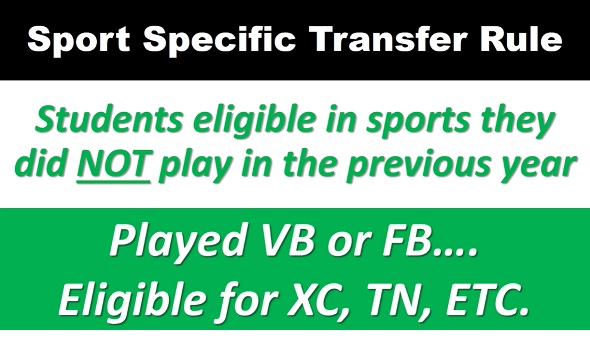
Statement on Spectators, Winter Contact Sports
January 22, 2021
Second Half
The following statements are attributable to Mark Uyl, executive director of the Michigan High School Athletic Association, in response to today’s announcements by Governor Gretchen Whitmer and the Michigan Department of Health and Human Services (MDHHS) on the topics of spectators and Winter contact sports.
Governor Whitmer and MDHHS announced that sports arenas with capacities of at least 10,000 spectators may allow up to 500 to attend events. However, no additional tickets will be sold for today and Saturday’s 11-Player Football Finals at Ford Field.
“We have been planning these Finals for weeks to include immediate family, and unfortunately this isn’t a process we can adjust midstream,” Uyl said. “Distributing more tickets would put stress on those plans and Ford Field staffing, and force schools to make more hard decisions on who will be able to attend, but at the last second instead of with prior planning.”
Governor Whitmer and MDHHS also announced that Winter contact sports – including MHSAA activities in girls and boys basketball, competitive cheer, ice hockey and wrestling – must remain non-contact through Feb. 21. The previous emergency order was set to expire at the end of January and would’ve allowed those sports to begin contact activities Feb. 1.
“We found out about this decision at 9:30 a.m. like everyone else, and we will address it as quickly as possible after taking the weekend to collect more information,” Uyl said. “We did not anticipate this delay in winter contact practices and competition, and today’s announcement has created many new questions.
“Obviously, this is disappointing to thousands of athletes who have been training with their teams over the last week and watching teams in other states around Michigan play for the last two months.”

Brush Up on the New Transfer Rule
July 18, 2019
By Rob Kaminski
MHSAA benchmarks editor
Eligibility under the new “sport-specific” transfer rule begins this coming fall after circulating extensively for nearly one school year.
Unless one of the stated 15 exceptions is met, participation during the 2018-19 school year determines eligibility for 2019-20.
The new rule adopted by the Representative Council at its May 2018 meeting has found support among most audiences. A transfer student’s eligibility in 2019-20 is based upon that student’s participation from this past school year (2018-19). It will be paramount for administrators and coaches to have awareness of the sports a transfer student participated in during the previous school year.
The long-standing 15 Exceptions to immediate eligibility, such as a full and complete residential change or a student moving between divorced parents by completing of an Educational Transfer Form, did not change.
One might call the rule on the way out “The Fourth-Friday Transfer Rule.” Under this old rule, when a student enrolled at the new school determined his or her eligibility. Under the new Sport Specific Transfer rule, what a student played in the previous season determines eligibility.
The Council passed a more lenient rule on the one hand and more restrictive on the other. The more lenient aspect is a change that finds a transfer student ELIGIBLE in any sport in which he or she did not participate in a game or a scrimmage in the previous school year.
The more restrictive portion tends to discourage students who change schools for sports reasons. A transfer student who did play a sport in the previous season – and who does not meet one of the 15 Exceptions – is NOT ELIGIBLE in that sport for the next season. If a student changes schools in mid-season, the student would be ineligible for the rest of that season in that sport and the next season for that sport.
Participation under this and other rules means playing in an interscholastic game or scrimmage after starting the 9th grade at any high school. It does not mean practice, but entering an interscholastic game, meet or scrimmage in any way. It also may involve more than one sport, so a three-sport athlete who does not have a residential change and transfers would be ineligible in those sports during the next school year – but eligible for any other sport. It also means a student cut from a team – one who never entered a scrimmage or game – may transfer and play without delay for that new school’s team. It may also mean that a student who meets one of the stated exceptions such as a residential change but enrolls in a school other than her or his school of residence, would have eligibility in sports not played in the previous year.
The new rule will tend to discourage students from changing schools for sports because they would be ineligible in any sport they have played in school the previous season for that sport. It will increase participation for some students who were otherwise not eligible under the current rule.
It is always best to contact school athletic directors who can connect with the MHSAA to verify eligibility prior to enrollment.
If the student’s new school requests in writing, the MHSAA Executive Committee may approve a waiver that reduces the period of ineligibility to 90 scheduled school days at the new school if the change of schools was for compelling reasons demonstrated with outside documentation having nothing to do with sports, curriculum, finances, and school demographics. The Executives Committee also has authority to approve immediate eligibility.

